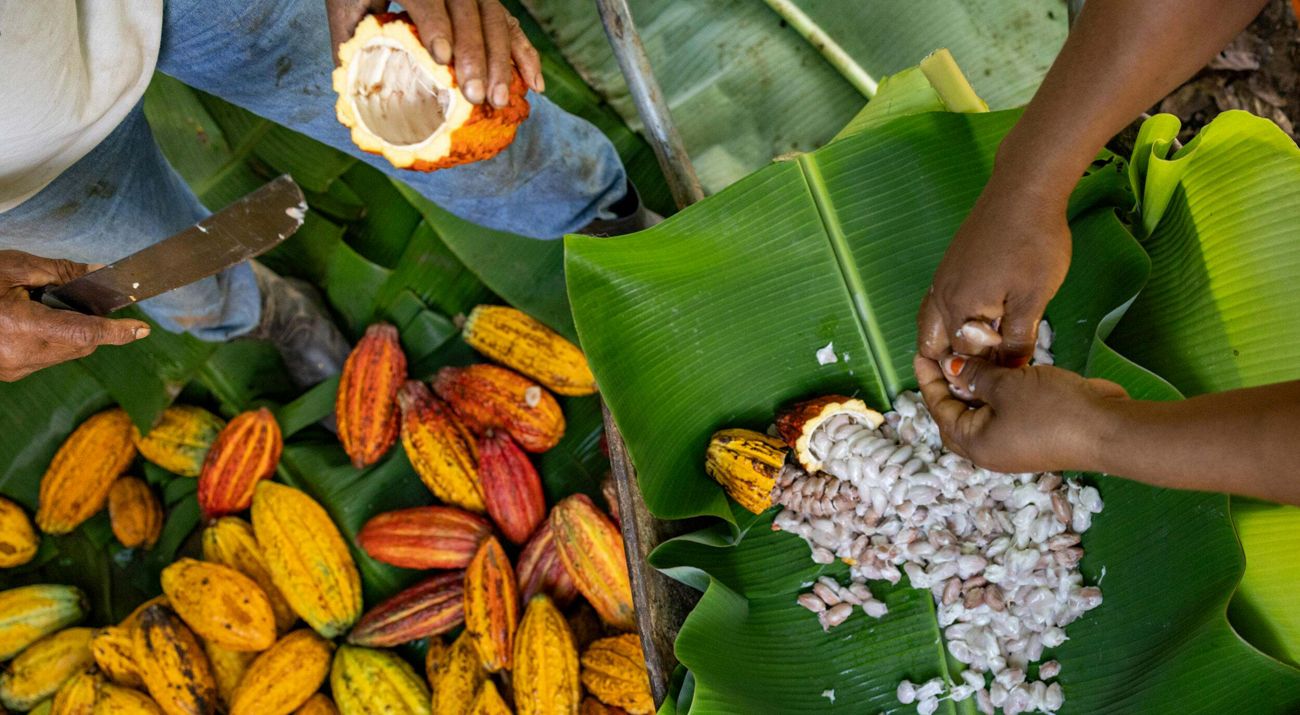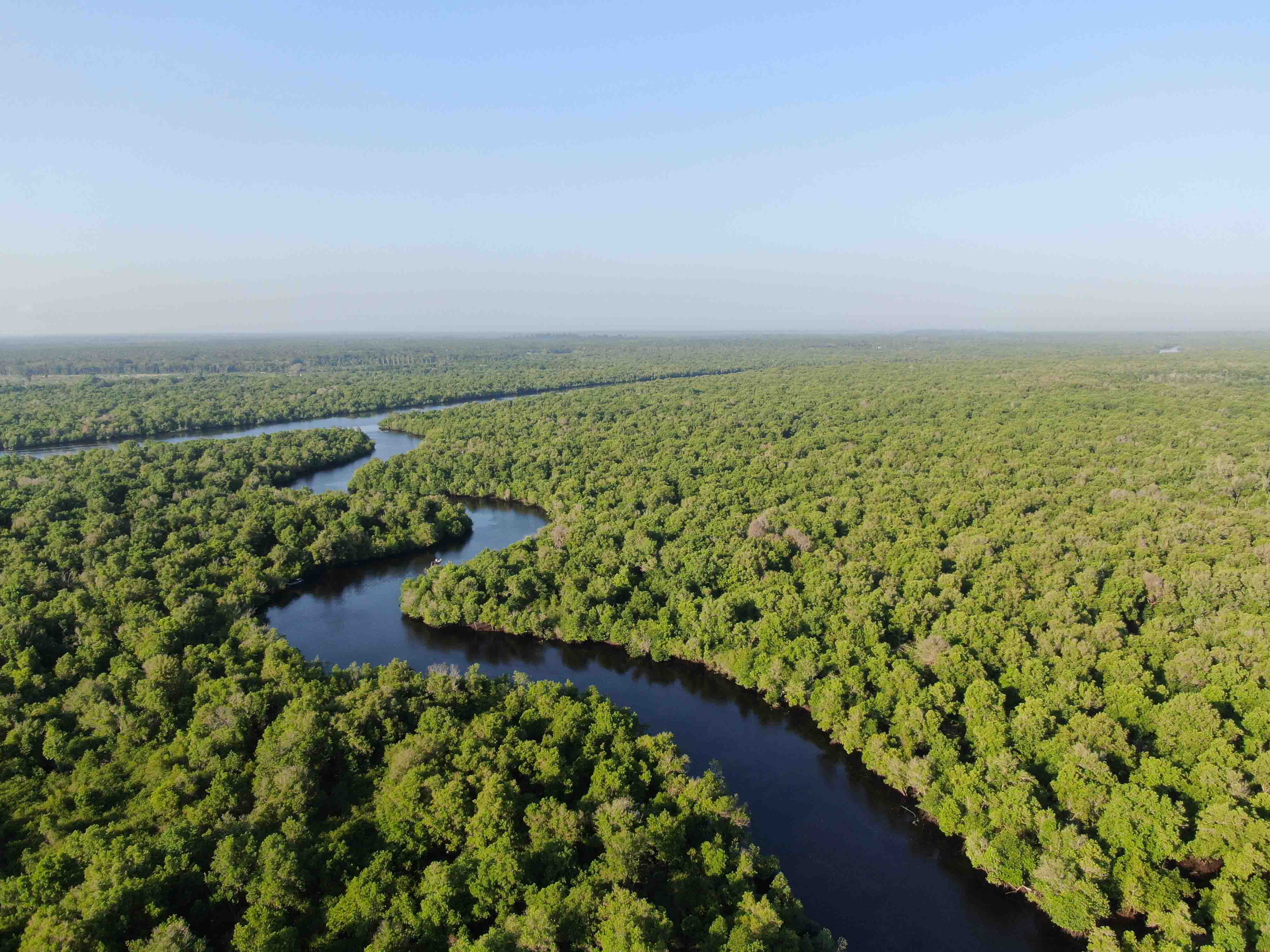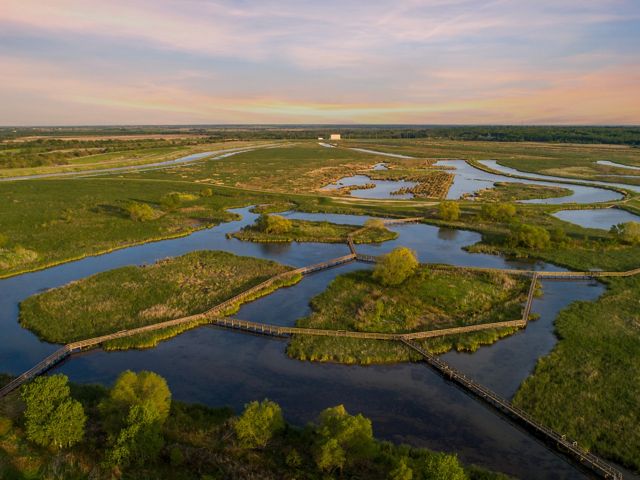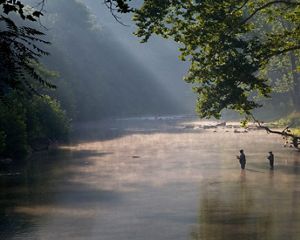Denise O’Leary and Kent Thiry Sustainability Fellowship
Discovery. Collaboration. Impact.

The Nature Conservancy and the Smithsonian Institution are partnering to support early-career scientists committed to co-creating solutions for a resilient planet.
The Denise O’Leary and Kent Thiry Sustainability Fellowship is a pioneering partnership between The Nature Conservancy and the Smithsonian Institution, designed to empower the next generation of scientific leaders in sustainability and planetary resilience.
This three-year postdoctoral fellowship brings together cohorts of researchers from diverse disciplines to advance innovative, evidence-based solutions for people and nature. Fellows work alongside communities and expert scientists, co-creating projects that drive measurable conservation outcomes and foster real-world change.
- Two cohorts of six postdoctoral fellows each, with overlapping years to encourage mentorship, collaboration and network-building.
- Fellows are chosen through a competitive, jointly managed process, prioritizing candidates that are innovative, pragmatic and community-centered.
- The program emphasizes shared ownership, cross-institutional mentorship and deep collaboration to ensure that fellows benefit from the expertise and resources of both the Smithsonian Institution (SI) and TNC.


Empowering Emerging Sustainability Leaders
Fellowship Experience
Fellows gain access to world-class mentorship, interdisciplinary research opportunities and training in essential skills such as communication, leadership and project management. The program is committed to supporting fellows in delivering impactful research, publishing their findings and achieving positive conservation results.
Partnership Impact
The SI-TNC Sustainability Fellowship is more than a research opportunity—it’s a catalyst for lasting partnerships, joint advocacy and global leadership in sustainability. By fostering open dialogue, joint fundraising and collaborative action, the program strengthens the collective impact of both organizations and their partners.
Learn more about the three priority fellowship research clusters

Enhancing Resilience in Coastal Wetlands
PIs: Lindsey Smart (TNC) and Steve Canty (SI)
Coastal wetlands, salt marshes, mangroves and seagrasses are the lifeblood of coastal communities worldwide. These vibrant ecosystems not only support livelihoods and host extraordinary biodiversity, but they also serve as powerful natural climate solutions. By capturing and storing carbon in their lush vegetation and rich soils, coastal wetlands help buffer communities from storms, adapt to changing climates and mitigate global warming.
Yet, despite their immense value, coastal wetlands face mounting threats from human activity, and opportunities to restore these vital landscapes are too often overlooked.
That’s why TNC and the Smithsonian Institution (SI) have joined forces, bridging TNC’s innovative Blue Carbon Plus initiative with SI’s Coastal Carbon Network. Together, we’re driving forward solutions to protect and restore coastal wetlands, combining cutting-edge science, local ecological knowledge and global networks.
Our mission: to deepen understanding of coastal wetland dynamics and create practical, sustainable pathways for resilience, both for the wetlands themselves and the communities that depend on them. By taking a seascapes approach, we’re generating and activating critical information about carbon quantification and unlocking financial opportunities for on-the-ground restoration.
We believe in the power of local leadership. Our teams work hand-in-hand with Indigenous Peoples and local communities, co-developing and implementing best practices to ensure long-term project success. By harnessing the strengths of both institutions and our partners, we’re building a future where coastal wetlands—and the people who rely on them—can thrive.

Agroforestry for Climate, Biodiversity and Livelihoods
PIs: Guillermo Florez Montero (TNC) and Ruth Bennett (SI)
Agroforestry, the integration of trees and shrubs into agricultural landscapes, is emerging as a powerful natural climate solution. It holds the potential to enhance biodiversity, support resilient livelihoods and contribute to climate mitigation. However, the impacts of agroforestry are complex and context-dependent, with both positive and negative outcomes possible for ecosystems and communities.
TNC and the Smithsonian Institution are working together to deepen understanding of agroforestry’s role in climate, biodiversity and human well-being. Their collaborative efforts include leveraging artificial intelligence to synthesize global research, analyzing field data from diverse sites and investigating the factors that drive synergies and trade-offs in coffee and cacao agroforestry systems.
Key activities include:
- Using AI to identify links between agroforestry practices and outcomes such as economic returns, human well-being and biodiversity.
- Assessing how management choices influence carbon storage and biodiversity in coffee and cacao systems.
- Compiling and analyzing extensive datasets on carbon, biodiversity, agroforestry structure and farmer perspectives.
Despite significant progress, important questions remain about when, where and how agroforestry delivers the greatest benefits for climate, people and nature. Ongoing research aims to clarify the mechanisms and contexts that facilitate success, providing actionable insights for practitioners, policymakers and communities worldwide.

Water Funds Living Lab: The health benefits of improved watershed management in Africa
PIs: Tuyeni Mwampamba (TNC) & James Hassell (SI)
The Water Funds project evaluates how upstream ecosystem restoration and food system management, core strategies of TNC’s Water Funds program, can improve water quality and supply for urban centers while delivering holistic health benefits for people and livestock.
By developing robust methodologies and standards for monitoring, the project aims to quantify how nature-based solutions for water resource management contribute to human and animal health, as well as the economic implications of improved well-being. This evidence-based approach is designed to inform and enhance Water Fund projects, ensuring that health impacts are intentionally considered in Africa and beyond.
Demonstrating the broader health benefits of watershed restoration and improved ecosystem management can help diversify conservation finance and attract new interest from both public and private health sectors. Ultimately, the Water Funds project exemplifies the power of science-driven collaboration to create lasting, positive impacts for communities and nature.


